Filter by
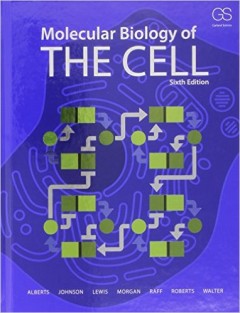
Molecular biology of the cell
As the amount of information in biology expands dramatically, it becomes increasingly important for textbooks to distill the vast amount of scientific knowledge into concise principles and enduring concepts.As with previous editions, Molecular Biology of the Cell, Sixth Edition accomplishes this goal with clear writing and beautiful illustrations. The Sixth Edition has been extensively revised …
- Edition
- 6th
- ISBN/ISSN
- 9780815344643
- Collation
- xxxiv, 1342 p. : ill. : ind. ; 28 cm.
- Series Title
- -
- Call Number
- 572.8 Alb m

Advances in applied microbiology volume 111
- Edition
- -
- ISBN/ISSN
- 9780128207055
- Collation
- viii, 170 p. : ill. : ind. ; 23 cm.
- Series Title
- -
- Call Number
- 610.28 Adv
- Edition
- -
- ISBN/ISSN
- 9780128207055
- Collation
- viii, 170 p. : ill. : ind. ; 23 cm.
- Series Title
- -
- Call Number
- 610.28 Adv

Pathogens and toxins in foods : challenges and interventions
- Edition
- -
- ISBN/ISSN
- 9781555814595
- Collation
- xii, 512 p. : ill. : ind. ; 29 cm.
- Series Title
- -
- Call Number
- 664.001 Pat
- Edition
- -
- ISBN/ISSN
- 9781555814595
- Collation
- xii, 512 p. : ill. : ind. ; 29 cm.
- Series Title
- -
- Call Number
- 664.001 Pat

Food microbiology 4th edition
- Edition
- 4th Edition
- ISBN/ISSN
- 9781849739603
- Collation
- xvi, 546 p. : ill. : ind. ; 23 cm.
- Series Title
- -
- Call Number
- 664.001 Ada f
- Edition
- 4th Edition
- ISBN/ISSN
- 9781849739603
- Collation
- xvi, 546 p. : ill. : ind. ; 23 cm.
- Series Title
- -
- Call Number
- 664.001 Ada f
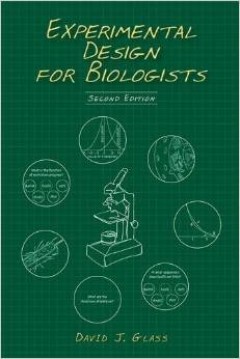
Experimental design for biologists
The effective design and analysis of experiments in biology are critical to success, yet graduate students in biological and medical sciences typically receive very little formal training in these steps. With feedback from readers of the first edition, colleagues, and students taking the very popular experimental design courses taught by the author, this second edition of Experimental Design fo…
- Edition
- 2nd
- ISBN/ISSN
- 9781621820413
- Collation
- viii, 289 p. : ill. : ind. ; 26 cm.
- Series Title
- -
- Call Number
- 519.57 Gla e

Biosaintifika : journal of biology and biology education vol. 12 no. 1 April …
- Edition
- vol. 12 no. 1 April 2020
- ISBN/ISSN
- 2085-191X
- Collation
- []
- Series Title
- -
- Call Number
- 570-j
- Edition
- vol. 12 no. 1 April 2020
- ISBN/ISSN
- 2085-191X
- Collation
- []
- Series Title
- -
- Call Number
- 570-j

Biosaintifika : journal of biology and biology education vol. 11 no. 3 Decemb…
- Edition
- vol. 11 no. 3 December 2019
- ISBN/ISSN
- 2085-191X
- Collation
- []
- Series Title
- -
- Call Number
- 570-j
- Edition
- vol. 11 no. 3 December 2019
- ISBN/ISSN
- 2085-191X
- Collation
- []
- Series Title
- -
- Call Number
- 570-j

Biosaintifika : journal of biology and biology education vol. 11 no. 2 August…
- Edition
- vol. 11 no. 2 August 2019
- ISBN/ISSN
- 2085-191X
- Collation
- []
- Series Title
- -
- Call Number
- 570-j
- Edition
- vol. 11 no. 2 August 2019
- ISBN/ISSN
- 2085-191X
- Collation
- []
- Series Title
- -
- Call Number
- 570-j

Biosaintifika : journal of biology and biology education vol. 11 no. 1 April …
- Edition
- vol. 11 no. 1 April 2019
- ISBN/ISSN
- 2085-191X
- Collation
- []
- Series Title
- -
- Call Number
- 570-j
- Edition
- vol. 11 no. 1 April 2019
- ISBN/ISSN
- 2085-191X
- Collation
- []
- Series Title
- -
- Call Number
- 570-j

Biosaintifika : journal of biology and biology education vol. 10 no. 1 April …
- Edition
- vol. 10 no. 1 April 2018
- ISBN/ISSN
- 2085-191X
- Collation
- []
- Series Title
- -
- Call Number
- 570-j
- Edition
- vol. 10 no. 1 April 2018
- ISBN/ISSN
- 2085-191X
- Collation
- []
- Series Title
- -
- Call Number
- 570-j

Biosaintifika : journal of biology and biology education vol. 10 no. 2 August…
- Edition
- vol. 10 no. 2 August 2018
- ISBN/ISSN
- 2085-191X
- Collation
- []
- Series Title
- -
- Call Number
- 570-j
- Edition
- vol. 10 no. 2 August 2018
- ISBN/ISSN
- 2085-191X
- Collation
- []
- Series Title
- -
- Call Number
- 570-j

Biosaintifika : journal of biology and biology education vol. 10 no. 3 Decemb…
- Edition
- vol. 10 no. 3 December 2018
- ISBN/ISSN
- 2085-191X
- Collation
- []
- Series Title
- -
- Call Number
- 570-j
- Edition
- vol. 10 no. 3 December 2018
- ISBN/ISSN
- 2085-191X
- Collation
- []
- Series Title
- -
- Call Number
- 570-j

Biosaintifika : journal of biology and biology education vol. 9 no. 3 Decembe…
- Edition
- vol. 9 no. 3 December 2017
- ISBN/ISSN
- 2085-191X
- Collation
- []
- Series Title
- -
- Call Number
- 570-j
- Edition
- vol. 9 no. 3 December 2017
- ISBN/ISSN
- 2085-191X
- Collation
- []
- Series Title
- -
- Call Number
- 570-j

Biosaintifika : journal of biology and biology education vol. 9 no. 1 April 2017
- Edition
- Vol. 9 No. 1 April 2017
- ISBN/ISSN
- 2085-191X
- Collation
- 167 p. : ill. ; 29 cm
- Series Title
- -
- Call Number
- 570 J
- Edition
- Vol. 9 No. 1 April 2017
- ISBN/ISSN
- 2085-191X
- Collation
- 167 p. : ill. ; 29 cm
- Series Title
- -
- Call Number
- 570 J

Biosaintifika : journal of biology and biology education vol. 9 no. 2 August …
- Edition
- Vol. 9 No. 2 August 2017
- ISBN/ISSN
- 2085-191X
- Collation
- -
- Series Title
- -
- Call Number
- 570 J
- Edition
- Vol. 9 No. 2 August 2017
- ISBN/ISSN
- 2085-191X
- Collation
- -
- Series Title
- -
- Call Number
- 570 J

Biosaintifika : journal of biology and biology education vol.8 no.1 March 2016
- Edition
- Vol.8 No.1 March 2016
- ISBN/ISSN
- 2085-191X
- Collation
- 75 p. : ill. ; 29 cm.
- Series Title
- -
- Call Number
- 570-j
- Edition
- Vol.8 No.1 March 2016
- ISBN/ISSN
- 2085-191X
- Collation
- 75 p. : ill. ; 29 cm.
- Series Title
- -
- Call Number
- 570-j
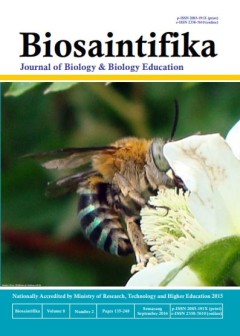
Biosaintifika : journal of biology and biology education vol.8 no.2 September…
- Edition
- Vol.8 No.2 September 2016
- ISBN/ISSN
- 2085-191X
- Collation
- [] : ill. ; 29 cm.
- Series Title
- -
- Call Number
- 570-j
- Edition
- Vol.8 No.2 September 2016
- ISBN/ISSN
- 2085-191X
- Collation
- [] : ill. ; 29 cm.
- Series Title
- -
- Call Number
- 570-j

Biosaintifika : journal of biology and biology education vol. 8 no. 3 Decembe…
- Edition
- Vol. 8 No. 3 December 2016
- ISBN/ISSN
- 2085-191X
- Collation
- 164 p. : ill. ; 29 cm.
- Series Title
- -
- Call Number
- 570 J
- Edition
- Vol. 8 No. 3 December 2016
- ISBN/ISSN
- 2085-191X
- Collation
- 164 p. : ill. ; 29 cm.
- Series Title
- -
- Call Number
- 570 J
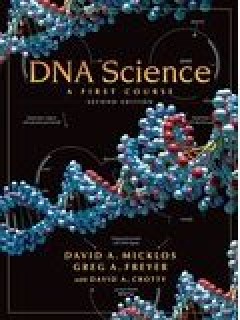
DNA science : a first course
This is the second edition of a highly successful textbook (over 50,000 copies sold) in which a highly illustrated, narrative text is combined with easytouse thoroughly reliable laboratory protocols. It contains a fully uptodate collection of 12 rigorously tested and reliable lab experiments in molecular biology, developed at the internationally renowned Dolan DNA Learning Center of Cold Spring…
- Edition
- Second edition
- ISBN/ISSN
- 9781936113170
- Collation
- xii, 575 p. : ill. : ind. ; 28 cm.
- Series Title
- -
- Call Number
- 572.86 Mic d

Plant and animal biology volume II
- Edition
- 4th Edition
- ISBN/ISSN
- 0273252232
- Collation
- v. illus. 23 cm.
- Series Title
- -
- Call Number
- 574 Vin p
- Edition
- 4th Edition
- ISBN/ISSN
- 0273252232
- Collation
- v. illus. 23 cm.
- Series Title
- -
- Call Number
- 574 Vin p

Prescott's microbiology tenth edition : international edition
- Edition
- Tenth Edition
- ISBN/ISSN
- 9789813151260
- Collation
- xxii, 980 p. : ill. ; ind. ; 28 cm.
- Series Title
- -
- Call Number
- 576 Wil p
- Edition
- Tenth Edition
- ISBN/ISSN
- 9789813151260
- Collation
- xxii, 980 p. : ill. ; ind. ; 28 cm.
- Series Title
- -
- Call Number
- 576 Wil p
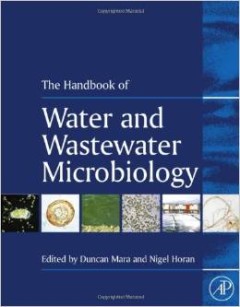
The handbook of water and wastewater microbiology
The Handbook of Water and Wastewater Microbiology provides a definitive and comprehensive coverage of water and wastewater microbiology. With contributions from experts from around the world, this book gives a global perspective on the important issues faced in the provision of safe drinking water, the problems of dealing with aquatic pollution and the processes involved in wastewater managemen…
- Edition
- -
- ISBN/ISSN
- 9780124701007
- Collation
- ix, 819 p. : ill. : ind. ; 26 cm.
- Series Title
- -
- Call Number
- 363.61 Han

The annotated and illustrated double helix
- Edition
- -
- ISBN/ISSN
- 9781476715490
- Collation
- xvi, 345 p. : ill. : ind. ; 22 cm.
- Series Title
- -
- Call Number
- 572.86 Wat a
- Edition
- -
- ISBN/ISSN
- 9781476715490
- Collation
- xvi, 345 p. : ill. : ind. ; 22 cm.
- Series Title
- -
- Call Number
- 572.86 Wat a

Industrial microbiology : fundamentals and applications
- Edition
- -
- ISBN/ISSN
- 81-7754-233-8
- Collation
- 660 p. : ill. : ind. ; 24 cm.
- Series Title
- -
- Call Number
- 660.62 Agr i
- Edition
- -
- ISBN/ISSN
- 81-7754-233-8
- Collation
- 660 p. : ill. : ind. ; 24 cm.
- Series Title
- -
- Call Number
- 660.62 Agr i

Manual of industrial microbiology and biotechnology
- Edition
- Third edition
- ISBN/ISSN
- 9781555815127
- Collation
- xvii, 766 p. : ill. : ind. ; 29 cm.
- Series Title
- -
- Call Number
- 660.62 Man
- Edition
- Third edition
- ISBN/ISSN
- 9781555815127
- Collation
- xvii, 766 p. : ill. : ind. ; 29 cm.
- Series Title
- -
- Call Number
- 660.62 Man

Developmental biology seventh edition
- Edition
- Seventh
- ISBN/ISSN
- 9781605357386
- Collation
- xx, 810 p. : ill. : ind. 30 cm.
- Series Title
- -
- Call Number
- 612.64 Gil d
- Edition
- Seventh
- ISBN/ISSN
- 9781605357386
- Collation
- xx, 810 p. : ill. : ind. 30 cm.
- Series Title
- -
- Call Number
- 612.64 Gil d

Study of CAAT box mutation in Y-TMT3 with @-tocopherol content and developmen…
- Edition
- -
- ISBN/ISSN
- -
- Collation
- vii, 23 p. : ill. ; 30 cm.
- Series Title
- -
- Call Number
- 574 Ari s
- Edition
- -
- ISBN/ISSN
- -
- Collation
- vii, 23 p. : ill. ; 30 cm.
- Series Title
- -
- Call Number
- 574 Ari s
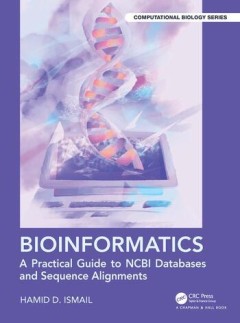
Bioinformatics : a practical handbook of next generation sequencing and its a…
- Edition
- -
- ISBN/ISSN
- 9789813144743
- Collation
- xiii, 235 p. : ill. ; 24 cm
- Series Title
- -
- Call Number
- 570.285 b
- Edition
- -
- ISBN/ISSN
- 9789813144743
- Collation
- xiii, 235 p. : ill. ; 24 cm
- Series Title
- -
- Call Number
- 570.285 b

Prescott's microbiology : international edition
he author team of Prescott's Microbiology continues the tradition of past editions by providing a balanced, comprehensive introduction to all major areas of microbiology. This balance makes Microbiology appropriate for microbiology majors and mixed majors courses. The authors have introduced a number of pedagogical elements designed to facilitate student learning. They also remain focused on re…
- Edition
- 9th
- ISBN/ISSN
- 9789814581561
- Collation
- xviii, 1014 p. : ill. : ind. ;
- Series Title
- -
- Call Number
- 576 Wil p

Jurnal biologi Indonesia vol.6, no.2, Juni 2010
- Edition
- Vol.6, No.2, Juni 2010
- ISBN/ISSN
- 0854-4425
- Collation
- []
- Series Title
- -
- Call Number
- 570 Jur
- Edition
- Vol.6, No.2, Juni 2010
- ISBN/ISSN
- 0854-4425
- Collation
- []
- Series Title
- -
- Call Number
- 570 Jur

Standard operation procedure microbiology laboratory at MRCCC Siloam Hospital
- Edition
- -
- ISBN/ISSN
- -
- Collation
- viii, 34 p. : ill. : 28 cm.
- Series Title
- -
- Call Number
- 576 Kez s
- Edition
- -
- ISBN/ISSN
- -
- Collation
- viii, 34 p. : ill. : 28 cm.
- Series Title
- -
- Call Number
- 576 Kez s

Campbell biology
Campbell BIOLOGY is the unsurpassed leader in introductory biology. The text’s hallmark values—accuracy, currency, and passion for teaching and learning—have made it the most successful college introductory biology book for eight consecutive editions.
- Edition
- 9th
- ISBN/ISSN
- 9780321739759
- Collation
- 1309, 49, 45 : ill. : ind. ; 27 cm.
- Series Title
- -
- Call Number
- 570 Ree c

Nature : vol.563, no. 7731 15 November 2018
- Edition
- Vol.563, No. 7731 15 November 2018
- ISBN/ISSN
- 9770028083095
- Collation
- []
- Series Title
- -
- Call Number
- 500 Nat
- Edition
- Vol.563, No. 7731 15 November 2018
- ISBN/ISSN
- 9770028083095
- Collation
- []
- Series Title
- -
- Call Number
- 500 Nat

Nature : vol.563, no. 7732 22 November 2018
- Edition
- Vol.563, No. 7732 22 November 2018
- ISBN/ISSN
- 9770028083095
- Collation
- []
- Series Title
- -
- Call Number
- 500 Nat
- Edition
- Vol.563, No. 7732 22 November 2018
- ISBN/ISSN
- 9770028083095
- Collation
- []
- Series Title
- -
- Call Number
- 500 Nat

Nature : vol.563, no. 7733 29 November 2018
- Edition
- Vol.563, No. 7733 29 November 2018
- ISBN/ISSN
- 9770028083095
- Collation
- []
- Series Title
- -
- Call Number
- 500 Nat
- Edition
- Vol.563, No. 7733 29 November 2018
- ISBN/ISSN
- 9770028083095
- Collation
- []
- Series Title
- -
- Call Number
- 500 Nat
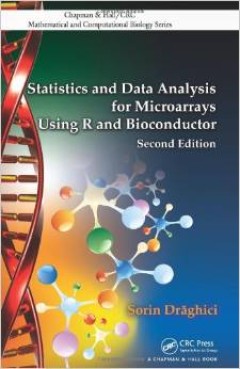
Statistics and data analysis for microarrays using R and Bioconductor
Richly illustrated in color, Statistics and Data Analysis for Microarrays Using R and Bioconductor, Second Edition provides a clear and rigorous description of powerful analysis techniques and algorithms for mining and interpreting biological information. Omitting tedious details, heavy formalisms, and cryptic notations, the text takes a hands-on, example-based approach that teaches students th…
- Edition
- -
- ISBN/ISSN
- 9781439809754
- Collation
- xlviii, 1042 p. : ill. : ind. ; 25 cm
- Series Title
- -
- Call Number
- 572.8636 Dra s

Essential cell biology
Essential Cell Biology provides an accessible introduction to the fundamental concepts of cell biology. Its lively writing and exceptional illustrations make it the ideal textbook for a first course in cell and molecular biology. The text and figures are easy-to-follow, accurate, clear, and engaging for the introductory student. Molecular detail has been kept to a minimum in order to provide th…
- Edition
- 3rd
- ISBN/ISSN
- 9780815341291
- Collation
- xx, 731 p. : ill. : ind. ; 29 cm.
- Series Title
- -
- Call Number
- 571.6 Alb e
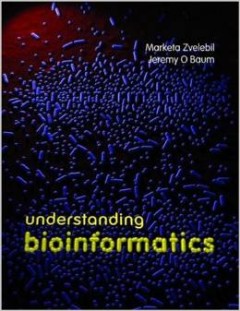
Understanding bioinformatics
Suitable for advanced undergraduates and postgraduates, Understanding Bioinformatics provides a definitive guide to this vibrant and evolving discipline. The book takes a conceptual approach. It guides the reader from first principles through to an understanding of the computational techniques and the key algorithms. Understanding Bioinformatics is an invaluable companion for students from thei…
- Edition
- -
- ISBN/ISSN
- 9780815340249
- Collation
- xxiii, 772 p. : ill. : ind. ; 28 cm.
- Series Title
- -
- Call Number
- 572.80285 Zve u
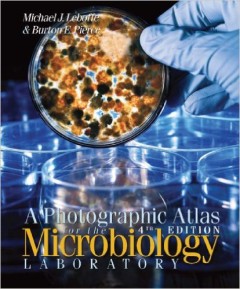
A photographic atlas for the microbiology laboratory
This full-color atlas is intended to act as a supplement to introductory microbiology laboratory manuals. It is not designed to replace them, nor is it intended to replace actual performance of the techniques. Rather, the photographs are supplied to help with the interpretation of results. The third edition of the Photographic Atlas for the Microbiology Laboratory is one of the best selling mi…
- Edition
- -
- ISBN/ISSN
- 9780895828729
- Collation
- viii, 256 p. : ill. : ind. ; 28 cm.
- Series Title
- -
- Call Number
- 579.022 Leb p
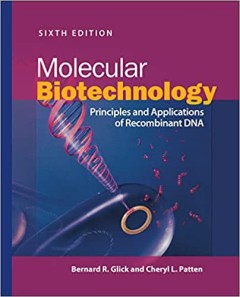
Molecular biotechnology : principles and applications of recombinant DNA
A unique, adaptable textbook for upper-level undergraduate and graduate courses emphasizing particular aspects of modern biotechnology. Features straightforward, jargon-free writing and extensive figures to help students make sense of complex biological systems and processes. Includes expanded coverage of the latest innovations in DNA sequencing techniques, therapeutics, vaccines, transgenic …
- Edition
- 4th
- ISBN/ISSN
- 9781555814984
- Collation
- xvii, 1000 p. : ill. : ind. ; 28 cm.
- Series Title
- -
- Call Number
- 660.65 Gli m
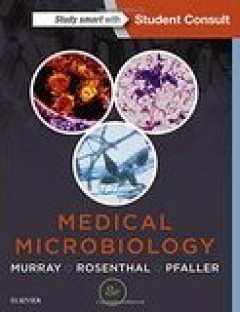
Medical microbiology : a guide to microbial infections : pathogenesis, immuni…
- Edition
- 18th
- ISBN/ISSN
- 9780702040900
- Collation
- xvi, 778 p. : ill. : ind. ; 25 cm.
- Series Title
- -
- Call Number
- 616.9041 Med
- Edition
- 18th
- ISBN/ISSN
- 9780702040900
- Collation
- xvi, 778 p. : ill. : ind. ; 25 cm.
- Series Title
- -
- Call Number
- 616.9041 Med
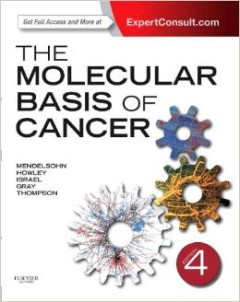
The molecular basis of cancer
The Molecular Basis of Cancer arms you with the latest knowledge and cutting-edge advances in the battle against cancer. This thoroughly revised, comprehensive oncology reference explores the scientific basis for our current understanding of malignant transformation and the pathogenesis and treatment of this disease. A team of leading experts thoroughly explains the molecular biologic principle…
- Edition
- 4th ed.
- ISBN/ISSN
- 9781455740666
- Collation
- xviii, 863 p. : ill. : ind. ; 29 cm.
- Series Title
- -
- Call Number
- 616.99 Men m
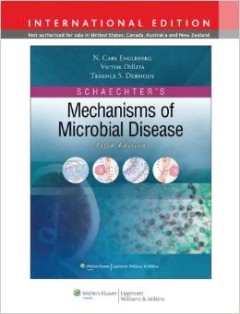
Schaechter's mechanisms of microbial disease
"Schaechter's Mechanisms of Microbial Disease" provides students with a thorough understanding of microbial agents and the pathophysiology of microbial diseases. The text is universally praised for "telling the story of a pathogen" in an engaging way, facilitating learning and recall by emphasizing unifying principles and paradigms, rather than forcing students to memorize isolated facts by rot…
- Edition
- 5th
- ISBN/ISSN
- 9781451100051
- Collation
- xvii, 826 p. : ill. : ind. ; 28 cm.
- Series Title
- -
- Call Number
- 616.9041 Eng s
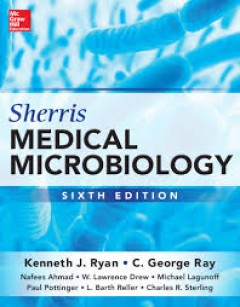
Sherris medical microbiology
This book gives you a solid grasp of the significance of etiologic agents, the pathogenetic processes, epidemiology, and the basis of therapy for infectious diseases.
- Edition
- 6th
- ISBN/ISSN
- 9781259255182
- Collation
- x, 994 p. : ill. : ind. ; 28 cm.
- Series Title
- -
- Call Number
- 616.01 She

Molecular and cellular toxicology : an introduction
Toxicology is the study of the adverse effects of chemical, physical, or biological agents on people, animals, and the environment. Toxicologists are trained to investigate, interpret, and communicate the nature of those effects. Over the last ten years the subject of toxicology has changed dramatically, moving from a discipline which was once firmly wedded to traditional methods to one whi…
- Edition
- -
- ISBN/ISSN
- 9781119952077
- Collation
- xxii, 409 p. : ill. : ind. ; 25 cm.
- Series Title
- -
- Call Number
- 615.907 Sta m

Microbiology; a text emphasizing molecular and genetic aspects of microbiolog…
- Edition
- -
- ISBN/ISSN
- -
- Collation
- xi, 1464 p. illus. 26 cm.
- Series Title
- -
- Call Number
- 576 Dav m
- Edition
- -
- ISBN/ISSN
- -
- Collation
- xi, 1464 p. illus. 26 cm.
- Series Title
- -
- Call Number
- 576 Dav m

The evolution of phylogenetic systematics
The Evolution of Phylogenetic Systematics aims to make sense of the rise of phylogenetic systematics—its methods, its objects of study, and its theoretical foundations—with contributions from historians, philosophers, and biologists. This volume articulates an intellectual agenda for the study of systematics and taxonomy in a way that connects classification with larger historical themes in…
- Edition
- -
- ISBN/ISSN
- 9780520276581
- Collation
- viii, 311 p. : ill. : ind. ; 24 cm.
- Series Title
- -
- Call Number
- 578.012 Evo

Reconstructing the tree of life : taxonomy and systematics of species rich taxa
- Edition
- -
- ISBN/ISSN
- 9780849395796
- Collation
- 351 p. : ill. : ind. ; 26 cm.
- Series Title
- -
- Call Number
- 578.012 Rec
- Edition
- -
- ISBN/ISSN
- 9780849395796
- Collation
- 351 p. : ill. : ind. ; 26 cm.
- Series Title
- -
- Call Number
- 578.012 Rec

Phylogenetics : theory and practice of phylogenetic systematics
The long-awaited revision of the industry standard on phylogenetics Since the publication of the first edition of this landmark volume more than twenty-five years ago, phylogenetic systematics has taken its place as the dominant paradigm of systematic biology. It has profoundly influenced the way scientists study evolution, and has seen many theoretical and technical advances as the field has …
- Edition
- 2nd
- ISBN/ISSN
- 9780470905968
- Collation
- xvi, 406 p. : ill. : ind. ; 26 cm.
- Series Title
- -
- Call Number
- 578.012 Wil p
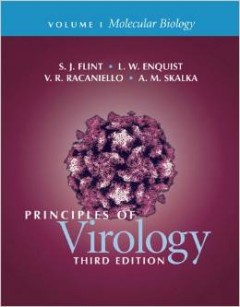
Principles of virology : volume I - molecular biology
Focuses on concepts and principles to present a comprehensive treatment from molecular biology to pathogenesis and control of viral infections. Illustrates why and how animal viruses are studied and demonstrates how the knowledge gained from such model viruses can be used to study viral systems that are still relatively unknown. Provides a thorough introduction to principles of viral pathogen…
- Edition
- 3rd edition
- ISBN/ISSN
- 9781555814793
- Collation
- xxii, 569 p. : ill. : ind. ; 28 cm.
- Series Title
- -
- Call Number
- 579.2 Fli p
 Computer Science, Information & General Works
Computer Science, Information & General Works  Philosophy & Psychology
Philosophy & Psychology  Religion
Religion  Social Sciences
Social Sciences  Language
Language  Pure Science
Pure Science  Applied Sciences
Applied Sciences  Art & Recreation
Art & Recreation  Literature
Literature  History & Geography
History & Geography